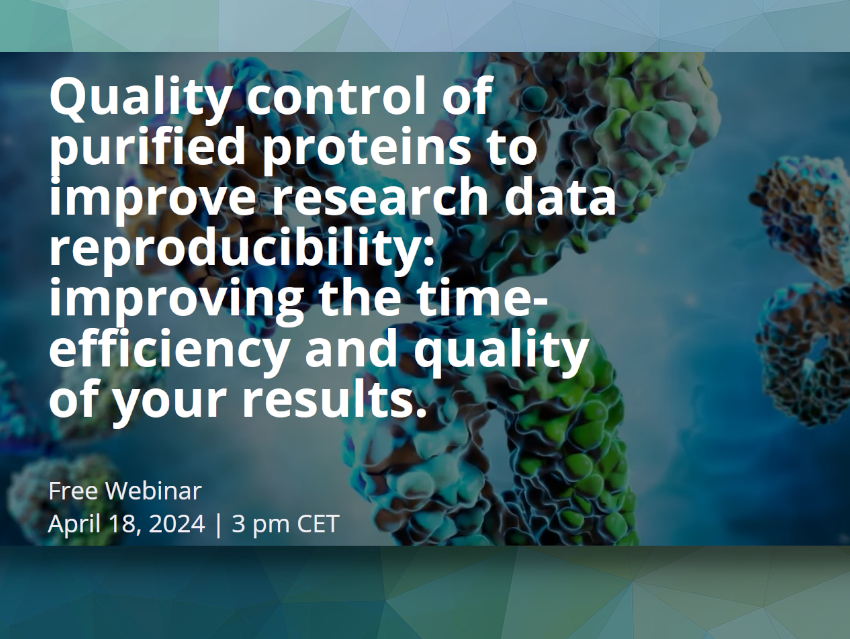Improving the time-efficiency and quality of your results.
The scientific community aims to improve the transparency and reliability of published research, with a specific focus on the quality of biological reagents, notably recombinant proteins. Concerns have been raised regarding irreproducible results, prompting discussions on common quality issues associated with recombinant proteins and their impact on downstream applications.
In response, professionals in protein purification and characterization have collaboratively developed guidelines for improved quality control. These guidelines include minimal information requirements for protein identity, production parameters, and long-term stability, as well as a minimal set of quality tests for purity, homogeneity, and identity. Additional recommendations cover DNA contamination, “spectral and thermal denaturation signatures”, homogeneity, “competent fraction”, storage conditions, batch-to-batch reproducibility, and other factors based on intended applications. Evaluation of these guidelines over a one-year period suggests that their implementation can enhance experimental reliability and optimize protein quality.
Investing in protein QC benefits all stakeholders in life sciences, including researchers, editors, and funding agencies, by improving data veracity and minimizing resource wastage.
Speaker
Dr. André Matagne, Full Professor at the University of Liège, Belgium
Event Details




